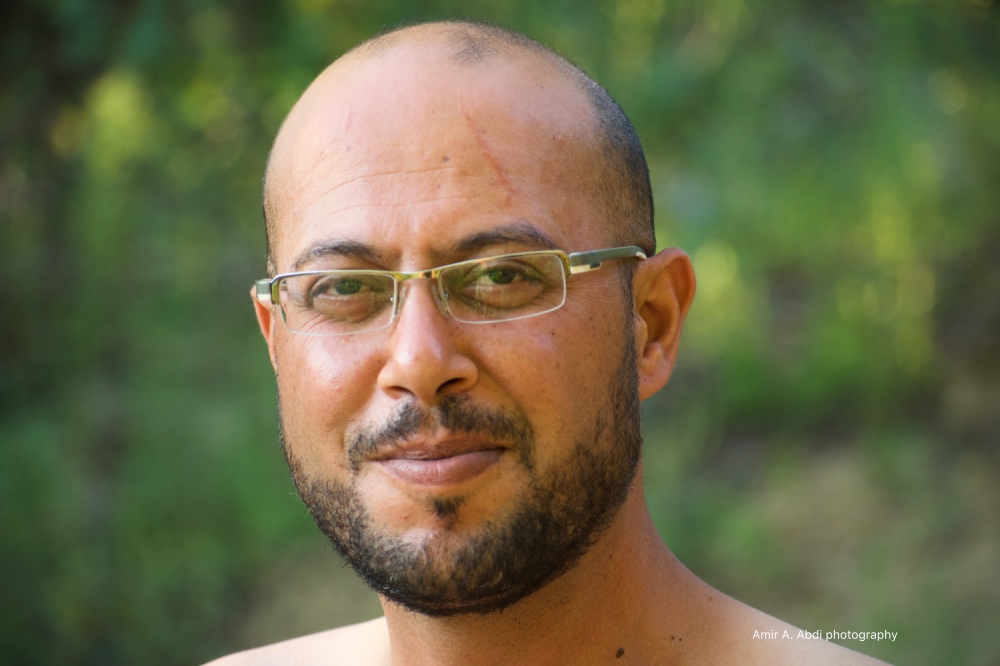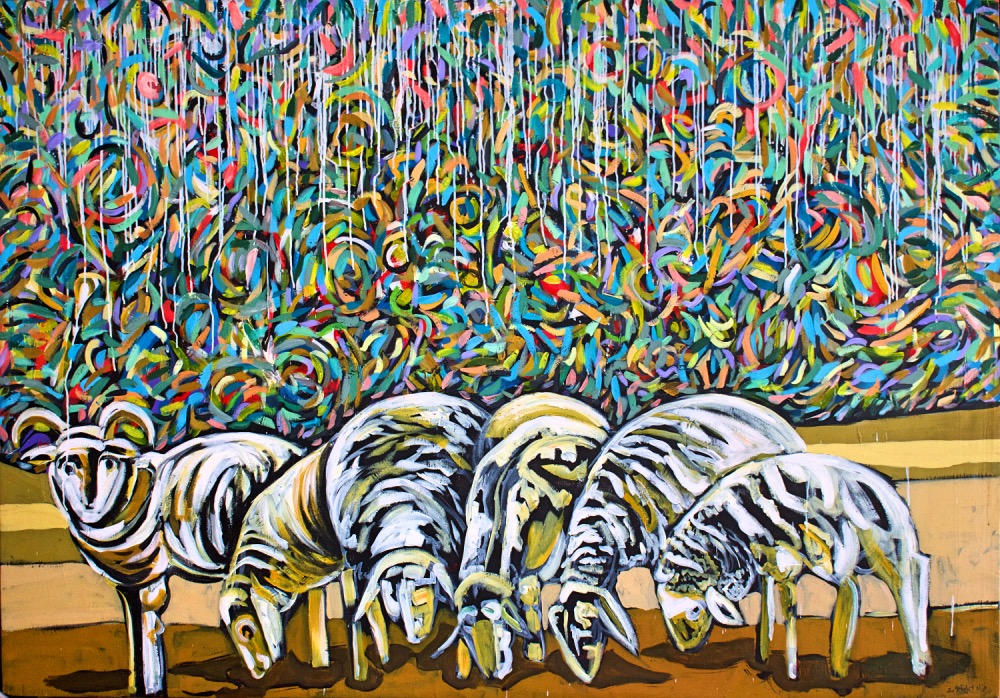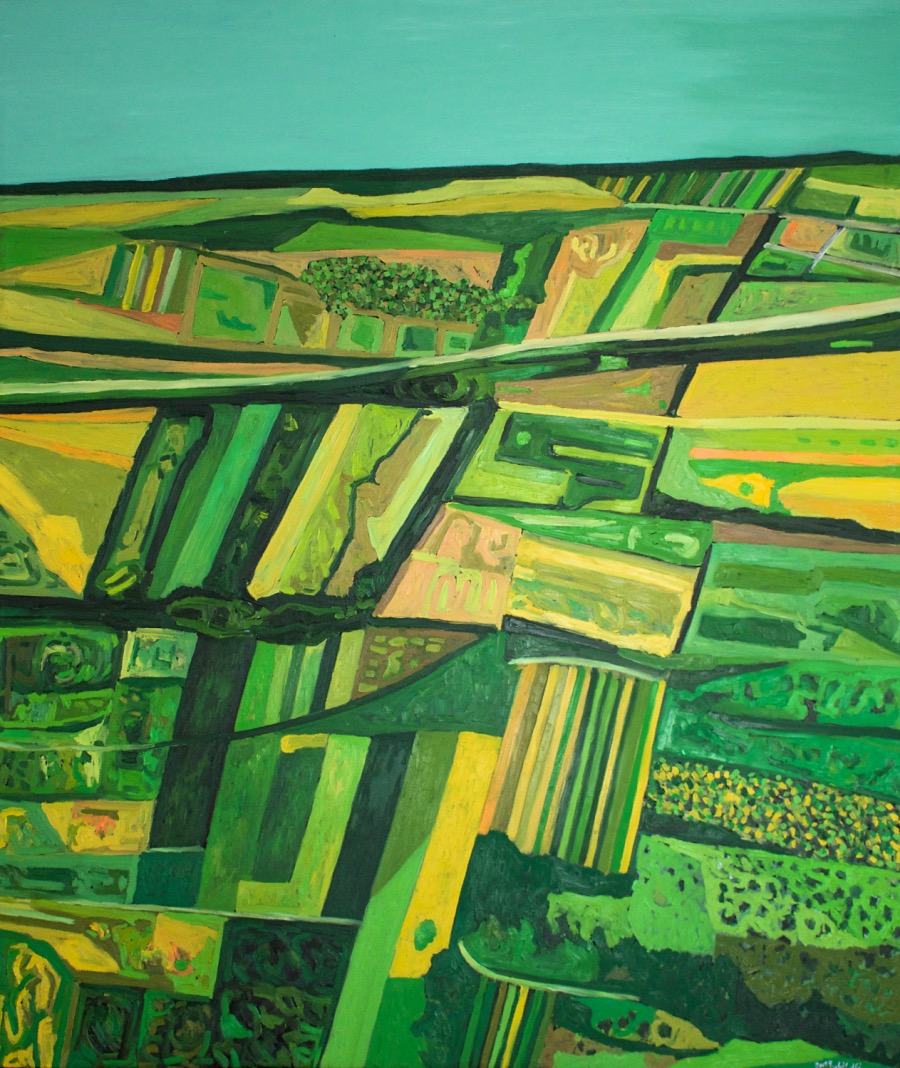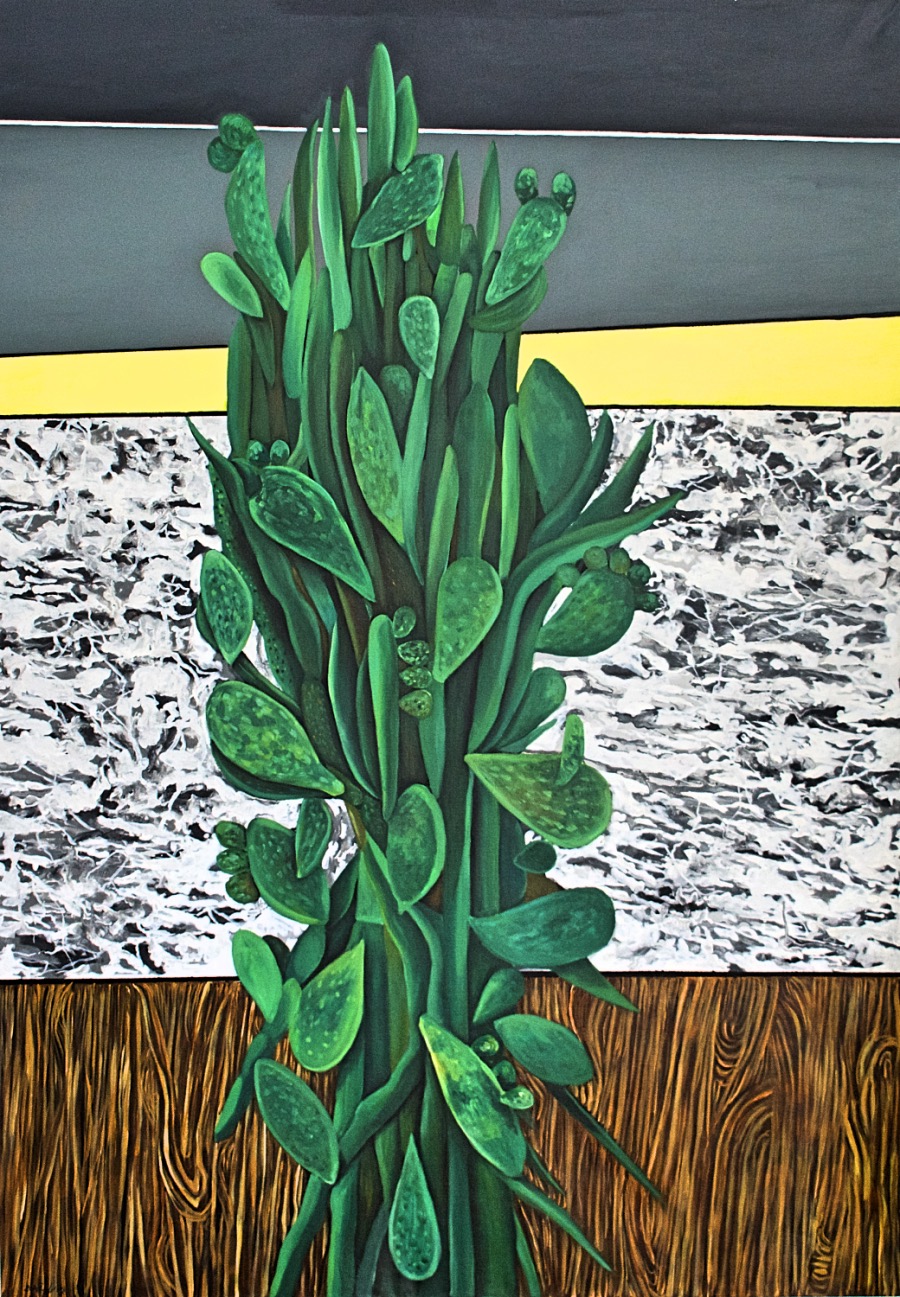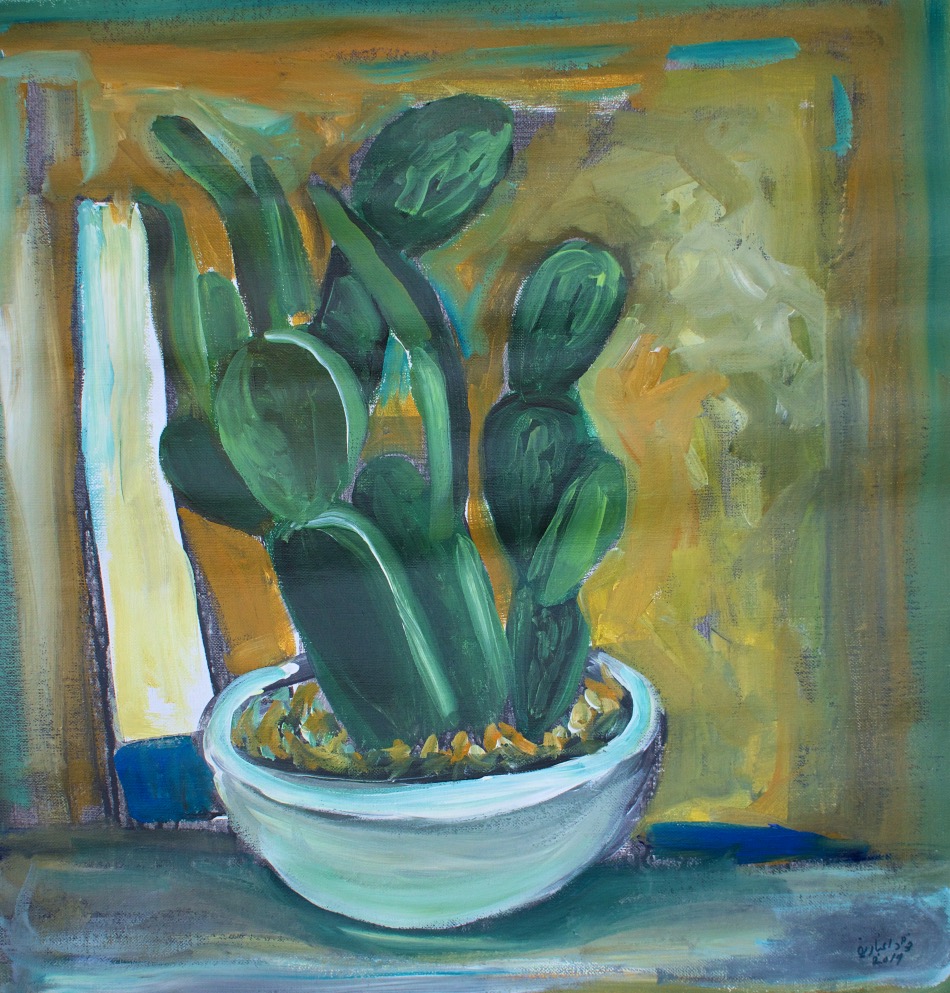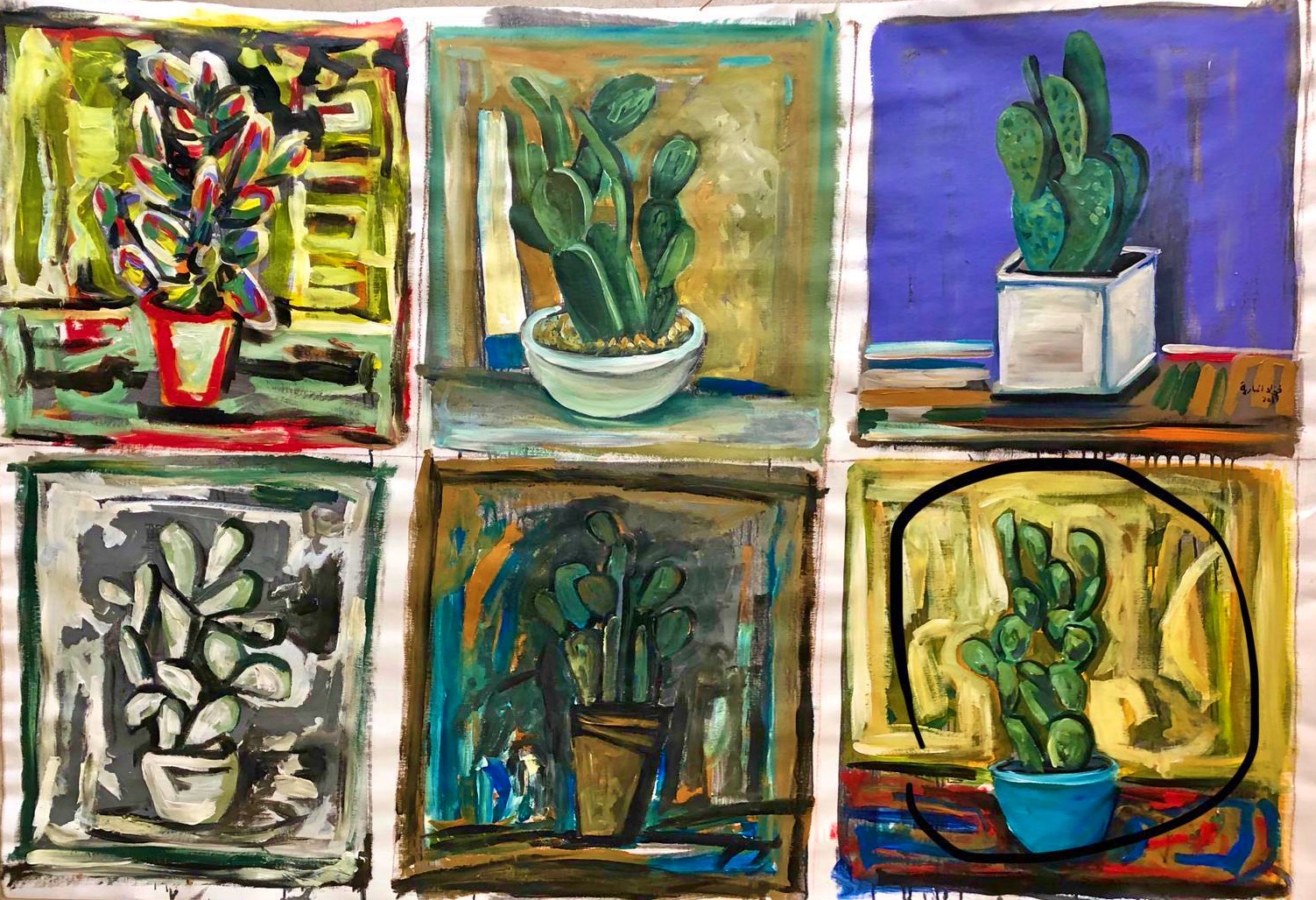
Born in the village of Musmus near Umm El Fahm in 1981, Fouad Agbaria is one of the most prominent young Palestinian artists working today. He is part of an important and empowered group of young Palestinian artists who are continually redefining what it means to be Palestinian in historic Palestine.
Agbaria is a fine arts graduate and an award winning student. He attained a bachelor’s degree from Bezalel Academy, Jerusalem in 2004 and a master’s degree from Haifa University in 2014.
Since completing his undergraduate degree, Agbaria has painted prolifically often experimenting with different styles, techniques and media including charcoal, oil, acrylic and lithography. His catalogue of work to date has dealt with many themes associated with the Palestinian narrative, identity and memory. He has participated in over 20 group exhibitions and has held three solo shows.
Nostalgia to the Light is his latest exhibition which will be held at Zawyeh Gallery, Ramallah, from 24 Oct. – 7 Nov. 2015. Agbaria showcases his recent works under three broad themes. In a series of oil paintings, once again Agbaria journeys to his early childhood and life in his home village. Exquisite Post-Impressionest style paintings depict simple rural pastimes, much of which have been lost but
remain foremost in Agbaria’s memory. The classic Palestinian symbol of the cactus – or Sabra – is central to Agbaria’s work and his latest paintings are homage to Palestinian survival and rebirth.
Nostalgia to the Light also showcases Agbaria’s latest project celebrating the Arabic script. In this new chapter, Agbaria engages and experiments with script, drawing on this very important part of his cultural inheritance. Darwish’s poetry, Quranic verses and personal philosophical meditations adorn each piece. Demonstrating great skill and equilibrium, his innovative use of colour perfectly illuminate his works.
Fouad Agbaria: Nostalgia to the Light
“Life can only be understood backwards; but it must be lived forwards.” Søren Kierkegaard
Fouad Agbaria’s Nostalgia to the Light showcases an impressive set of new paintings inspired by his childhood experiences and cultural inheritance. His home village of Musmus near Umm El Fahm provides the backdrop to his landscape paintings. Broadly grouped under the theme of Harvest, Agbaria journeys back to his early childhood and relives precious memories and experiences of rural pastimes, translating them into unique and exquisite oil paintings. Eloquently capturing the many delicate interactions with nature, Agbaria is symbolically giving thanks to the terrain of his childhood and ancestors.
His artistic maturity is evident in all his works. During his studies and soon after his graduation, Agbaria experimented with different styles, techniques and media including charcoal and lithography. However, it is in his oil painting that he truly excels. Sweeping yellow wheat fields; men and women tilling the land and harvesting their crops form the recurring imagery in his work. Although influenced by the Post-impressionists – especially greats such as Van Gogh – Agbaria has developed his own unique style that is intrinsic to his cultural influences and heritage. His unrestrictive approach is characterized by fine and broad free brush strokes of brown and black applied over domineering yellow plains. Such artistic endeavors are fast distinguishing Agbaria as a special Palestinian artist.
Agbaria’s artistic talents are best reflected in his study of the cactus tree -sabra – the classic Palestinian symbol of patience and survival. Sabra fences in destroyed villages painted in a near realist style also portray loss and tragedy. Yet at the same time, these fences are often laden with sweet fruit indicating hope and longevity. The sabra as a visual motif has provided Agbaria with ample room for creativity and this is evident in a selection of still life paintings. The multi-coloured depiction of sabra fences indicate an artist who is at ease with subject and method. Quite critically, Agbaria, along with a number of his contemporaries have re- appropriated the sabra as a potent Palestinian symbol and metaphor.
Nostalgia to the Light also showcases Agbaria’s latest project celebrating the Arabic script. A new chapter in Agbaria’s catalogue of work, he engages and experiments with script, drawing on this very important part of his cultural inheritance. Darwish’s poetry, Quranic verses and personal philosophical meditations adorn these pieces, reinforcing Agbaria’s influences and identity. Many of the words and letters are turned into beautiful abstract patterns to furnish his style. Demonstrating great skill and equilibrium, his innovative use of color perfectly illuminates each painting.
Agbaria’s nostalgic reflections and cherished memories help us understand and treasure our glorious heritage.
Sulieman MLEAHAT October 2015
Artist Statement
In my new exhibition Nostalgia to the Light, words, colours and thought merge within a singular intellectual and emotional framework. My works utilize connotations and various techniques to help me in my search; conjuring up recollections and obsessions that have ravaged my subdued and deepest memories. It is an attempt to recall and revive beautiful memories; lighting oil lanterns to illuminate their dimensions: land, soul, and body cradled within the sky.
In this day and age, time rushes by and events travel in a flash of light, leaving us at a loss. With the recall of childhood memories and recollections that refuse to budge and wither, such as letters and words that make up the story of a nation. Words sway between good and evil, love and hatred, and devastation and hope in their journey in search of light. Within cactus fences lies a fable that tells the story of a struggle between right and wrong, containment and safety, and a memory shedding light on an abandoned home and an assaulted land, refusing to be defeated, with all its sweetness and thorns/bitterness.

